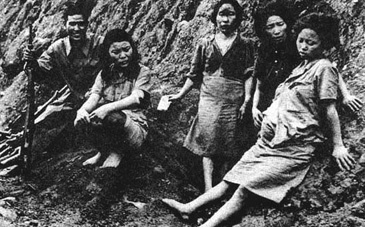In one sense.
In another, the Americans have reaped what they sowed by nuking Japan. It made Japan a resolutely anti-war society, notwithstanding the potentially dangerous retrograde elements that yank my chain (and China’s and a lot of other places’). The Americans have made several attempts to get Japan to renounce or ignore its ‘no war’ constitution, starting a few years after it was instituted.
Article Nine. Early in the occupation, MacArthur identified the abolition of war as a critical principle to be included in any revision of Japan’s constitution. MacArthur drew on the idea of a world without war expressed in the 1928 Kellogg-Briand Pact. However, the no-war provision as it appears in the final constitution is very much a negotiated principle, going beyond American mandate or authorship. MacArthur stipulated that Japan would abolish war as a sovereign right of the nation. War would be renounced as a means to settle disputes and as a means to preserve security. Japan would not have the right to build or maintain a Japanese Army, Navy, or Air Force, and would relinquish the right of belligerency (Gordon: 104). This wording would have denied Japan the right to use military force for any reason, including defense. In the February 1946 draft constitution, Charles Kades, chair of SCAP’s constitutional committee, deleted the reference to national defense, but broadened the prohibition against military forces and supplies.
Once in their court, Japanese Diet members debated the clause, particularly its implications for national defense. Many within the Diet argued that this meant Japan could not defend itself from attack. Others countered that the right of national defense was irrevocable and so Article Nine could not prohibit it. Still others cautioned that the Pacific War had been waged in the name of national defense. Some argued that Article Nine would keep Japan out of the United Nations by precluding Japan from contributing to international peacekeeping and thus, be ultimately self-defeating. While politicians argued, the Japanese people embraced the no-war provision. John Dower suggests that they did so because Article Nine offered this devastated, defeated people a positive national result from the war. While they might be proud of little in their recent national past, Japanese could be proud to lead the world in outlawing war (398).
Following months of debate, the final version of the “no-war” clause came from Japan’s House of Representatives:
Aspiring sincerely to an international peace based on justice and order, the Japanese people forever renounce war as a sovereign right of the nation and the threat or use of force as a means of settling international disputes.
In order to accomplish the aim of the preceding paragraph, land, sea, and air forces, as well as other war potential, will never be maintained. The right of belligerency of the state will not be recognized.
Most analysts agree that the failure to clearly define national defense left the meaning of Article Nine open to debate for all time. Article Nine’s ambiguity came into play almost immediately with the communist victory in the Chinese Civil War, and then again with the Korean War. In the Cold War context of a regional communist threat, U.S. and Japanese governments interpreted Article Nine to support rearmament for national defense.
Currently, Bush and his morons have been pushing Japan to take a greater stake in fighting Bush’s bogey of “tourism”.
It’s a pity that George the Stupid and other national leaders weren’t limited by constitutions similar to Japan’s.
I was watching a docu regarding the ‘Comfort Girls’ which was very annoying, particularly as they interviewed former Japanese soldiers that had made use of them, and they were now saying how much they had respected these girls. Not the same story as the girls themselves told. Some of these former Comfort Girls confronted Japanese tourists, many of them young females, and explained the situation to them. The Japanese women broke sown as they heard about the atrocities commited against the girls.
The comfort women issue ain’t always as simple as it’s made out to be.
There are complex issues about Japan’s colonial exploitation of Korea to WWII and, much as modern Korea and other nations might wish to deny them, unpleasant realities about families selling girls into sexual slavery or just selling them without concern for where they might end up. It still goes on, otherwise a lot of bars in Asia wouldn’t have 10 year old sheilas out the back for ugly fat Aussies and other Westerners to fuck. Bastards!
There’s some excellent papers by feminist writers (not nutcase man haters but good historians and social analysts) on this, including one Korean writer. I’ll see if I can find one.



